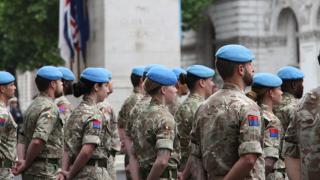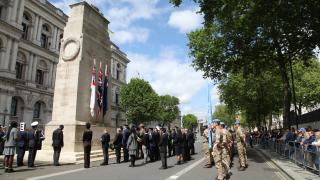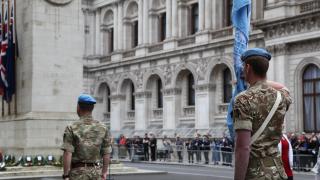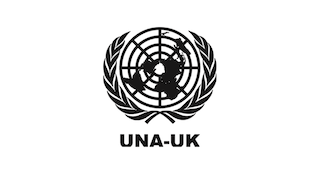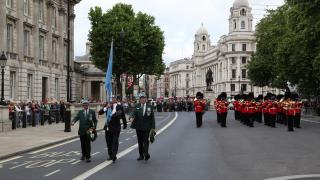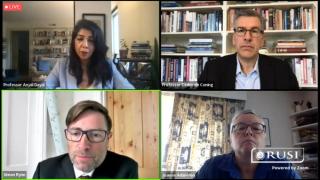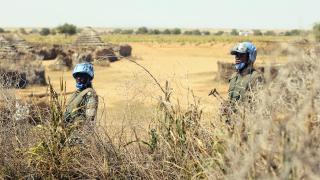
UNA-UK and Waging Peace have expressed concern at recent decisions which will significantly reduce the UN and African Union’s joint Peacekeeping Mission in Darfur (UNAMID).
Following a campaign by our organisations and others, the UN Security Council agreed to a resolution drafted by the United Kingdom which would see planned cuts to troop numbers phased in gradually, with the option to suspend and reverse them should the situation worsen. However, the cuts are still significant, and could be accelerated by the precarious state of the mission's finances, following a decision of the UN General Assembly to significantly reduce funding and to only provide support for six months, with further difficult budget discussions now being required in December.
The Darfur resolution
There had been fears that, in response to requests by the United States to considerably reduce peacekeeping costs, the UN Mission in Darfur would be drastically cut. The UN opted to ‘draw the sting’ by itself proposing a phased reduction in the mission: in the first six months troop numbers would drop by 28% and police numbers by 20%, in the second six months they would fall further, leading to a final overall reduction of 44% of troops and 30% of police by the end of the year.
The Security Council resolution broadly accepted this proposal, while emphasising the importance of reductions being evidence led and reversible should the situation change. Specifically they said,
“any further refinement of the Mission should be based on progress against the benchmarks and the conditions on the ground, and implemented in a gradual, phased, flexible and reversible manner”
and that the second stage would not go ahead as planned if,
“the Security Council decides, taking into account the findings of the assessment requested in paragraph six of this Resolution, to adjust the scope and pace of the reduction;”
Prior to the decision, UNA-UK and Waging Peace had called for the Security Council to consider three issues. In each case the Council resolution included steps designed to address these matters, although in each case there remains cause for concern.
- We called for a flexible approach that had the ability to respond to threats to civilian lives across the region and retain protection of civilians as its first priority
The resolution emphasised the importance of the protection of civilians and the need for flexibility to ensure that this takes place. The wording regarding the importance of reductions being suspendable and reversible also speaks to this flexibility. The resolution also shows a clear understanding of the importance of mobility in ensuring that civilians can be protected effectively. However, the resolution still envisages UN troops withdrawing from almost all areas of Darfur, with only the Jebel Marra district retaining a significant troop presence. This means that peacekeepers will be far removed from large areas of Darfur, and may therefore struggle to adequately protect civilians. Further the resolution states, without evidence, that the freedom of movement of Mission personnel is much improved. This is highly debatable.
- We called for the resolution to enhance human rights monitoring and reporting with respect to its current levels
The resolution does considerably strengthen reporting requirements and emphasises the importance of monitoring. However, it is not clear what new processes or mechanisms will be put in place to increase the access, scope, scale or efficacy or monitoring. Increased reporting is welcome, but without better monitoring it may not be meaningful.
- We called for the resolution to assure humanitarian access
The resolution repeatedly stresses the importance of establishing and maintaining humanitarian access. However, without any clear enforcement mechanisms, and in the context of a significant reduction in mission size and scope, it is not clear how words will translate into action.
These issues are concerning, as is the fact that yet again, and despite our best efforts, it appears Darfuris themselves were peripheral to the decision-making process and little regard was given to their wishes and needs. Nevertheless, it is positive that Security Council members did not demand even greater cuts than the UN were offering, and pleasing that they took seriously the areas of concern we highlighted. However, additional risks are presented by a parallel negotiation that took place in the General Assembly regarding the peacekeeping budget for 2017.
The 2017 Peacekeeping budget
As part of the negotiations surrounding the Peacekeeping budget for 2017 the UN offered to cut the budget of the mission by around $7 million, just under 1%. The General Assembly instead took a much more drastic action, choosing to only fund the mission for six months, up until December, with the mission then having to go through an additional budget negotiation in light of the strategic review of the mission that will take place at that time.
A six month budget is certainly not uncommon, particulary in the light of mission recalibrations, but such a move, coming as it does against the background of the United States demanding ever deeper cuts, which will by that point only be readily available from UNAMID's budget, does greatly reduce the mission's chances of receiving much additonal funding. Even if the December negotiation were to result in the same amount of funds being allocated for the second six months as the first, the consequence would be a 6% cut to the mission's budget. Very significant budget cuts are a far more likely outcome.
This might mean that phased and limited reductions in troop numbers envisaged by the Security Council may have to be increased, accelerated, and accompanied by a reduction in activity due to a lack of available funds. In a context which the Joint Special Representative of the UN-AU peacekeeping Mission in Darfur (Unamid), Jeremiah Mamabolo, has described as "precarious" and "fragile" this provides ample cause for concern.
Darfuris, too long ignored by the international community, should not be expected to bear a disproportionate proportion of the burden of a short-sighted attempt to reduce the overall cost of peacekeeping regardless of consequences on the ground. Costs can, and should, come down, but should do so fairly and in response to the changing ground situation. Our concern is increased by the fact that budget discussions appear to be taking place with even less regard to the views of Darfuris than the negotiations around the mandate did. Many Darfuri and diaspora civil society organisations were not even aware that such discussions were taking place, and it remains to be seen how many Darfuri voices will be consulted before the final budget allocation for Darfur is agreed in December.
Making savings at the cost of peace and security is a false economy, and the price will not only be paid in dollars.
UPDATE
In December the UN approved a further $425 million for the UN Mission in Darfur (UNAMID) bringing the total budget to $911 million. This represents a 12% cut relative to the 2017 budget.

